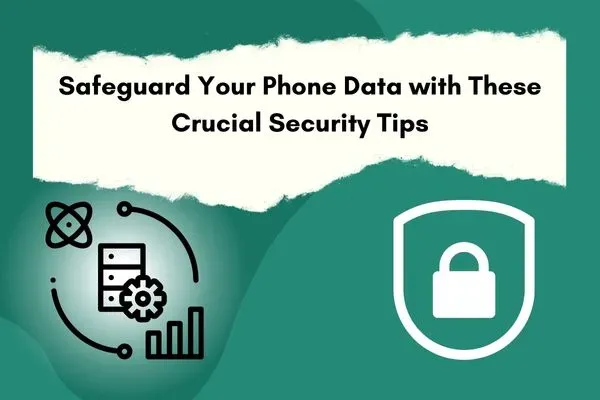In a world where data leaks have become alarmingly common, safeguarding your smartphone's data has never been more critical. Whether it's Facebook experiencing a data breach or a shopping site's confidential information being compromised, the risks are omnipresent. Even your smartphone's private data, including photos, videos, or sensitive files, can be susceptible to leaks. Once data is leaked, your private information—email IDs, passwords, mobile numbers, etc.—lands in the hands of hackers. Subsequently, the data may be sold on dark web hacker forums, leading to personal blackmail or other malicious activities.
Why Does Phone Data Leak Occur?
Data leaks happen due to various reasons, and it's essential to be aware of them to prevent any unpleasant incidents in the future. If you're an Android smartphone user, here are some crucial tips to keep your data secure:
1. Update Your Operating System Regularly:
Keeping your Android operating system updated is fundamental to ensuring the latest security patches are in place. Manufacturers often release updates to address vulnerabilities, and neglecting them may expose your device to potential threats.
2. Be Wary of App Permissions:
When installing apps, be mindful and careful of the permissions they request. If an app asks for unnecessary access to your contacts, camera, or other sensitive data, reconsider installing it. Only grant permissions that are essential and needed for the app's functionality.
3. Use Strong and Unique Passwords:
Your smartphone is always a treasure trove of personal information. Ensure that you have a robust password to unlock your device, and use unique passwords for your accounts. Avoid easily guessable password combinations, such as birthdays or common words/dictionary word.
4. Enable Two-Factor Authentication:
5. Regularly Review App Permissions:
You should periodically review the permissions granted to your installed apps. If there are any apps that you no longer use or that have excessive permissions, consider uninstalling them. This surely minimizes the risk of data leakage.
6. Install Apps from Trusted Sources Only:
Stick to official app stores like Google Play to download and install apps. Avoid sideloading apps from unknown sources, as these may contain malicious code that could compromise your data security.
7. Use a Reliable Antivirus App:
Investing in a reputable antivirus app adds an extra layer of defense against malware and malicious software. Regularly scan your device for potential threats and take immediate action if any issues are detected.
8. Secure Your Wi-Fi Connections:
Public Wi-Fi networks are usually vulnerable to security breaches. When connecting to public Wi-Fi, use a virtual private network (VPN) to encrypt your internet connection, safeguarding your data from potential eavesdroppers.
9. Back Up Your Data Regularly:
In the unfortunate event of data loss, having regular backups ensures you can restore your important files. Utilize cloud storage or an external device for secure data backups.
10. Educate Yourself About Phishing Attacks:
Be cautious of phishing attempts, where attackers pose as trustworthy entities to trick you into revealing sensitive information. Do not click on suspicious links or provide personal details to unknown sources.
Conclusion:
In a digital age rife with data leaks, safeguarding your smartphone's data is a non-negotiable priority. By following these security tips, Android users can fortify their devices against potential threats and enjoy a safer digital experience.
FAQs About Phone Data Security:
Q:1 How often should I update my Android operating system?
A: Regularly check for updates and aim to install them as soon as they are available.
Q:2 Are antivirus apps necessary for Android smartphones?
A: Yes, a reliable antivirus app adds an extra layer of protection against malware and security threats.
Q:3 What are the two-factor authentication, and why is it important?
Q:4 Can I trust app reviews and ratings for security concerns?
A: While not foolproof, checking reviews and ratings can provide insights into potential security issues with an app.
Q:5 How can I report suspicious activity on my Android device?


Post a Comment
Please do fair and genuine comment only